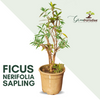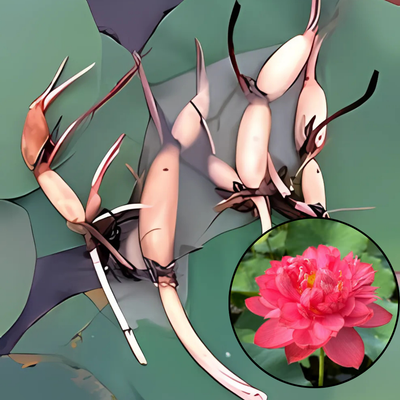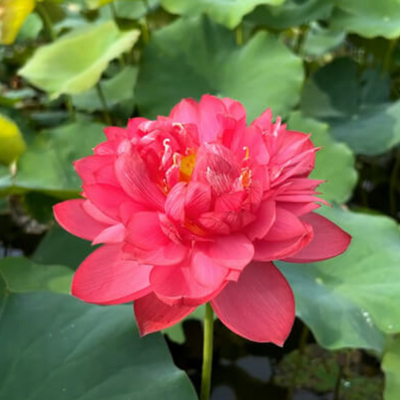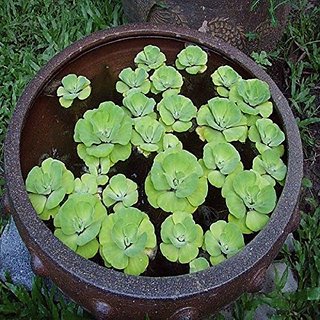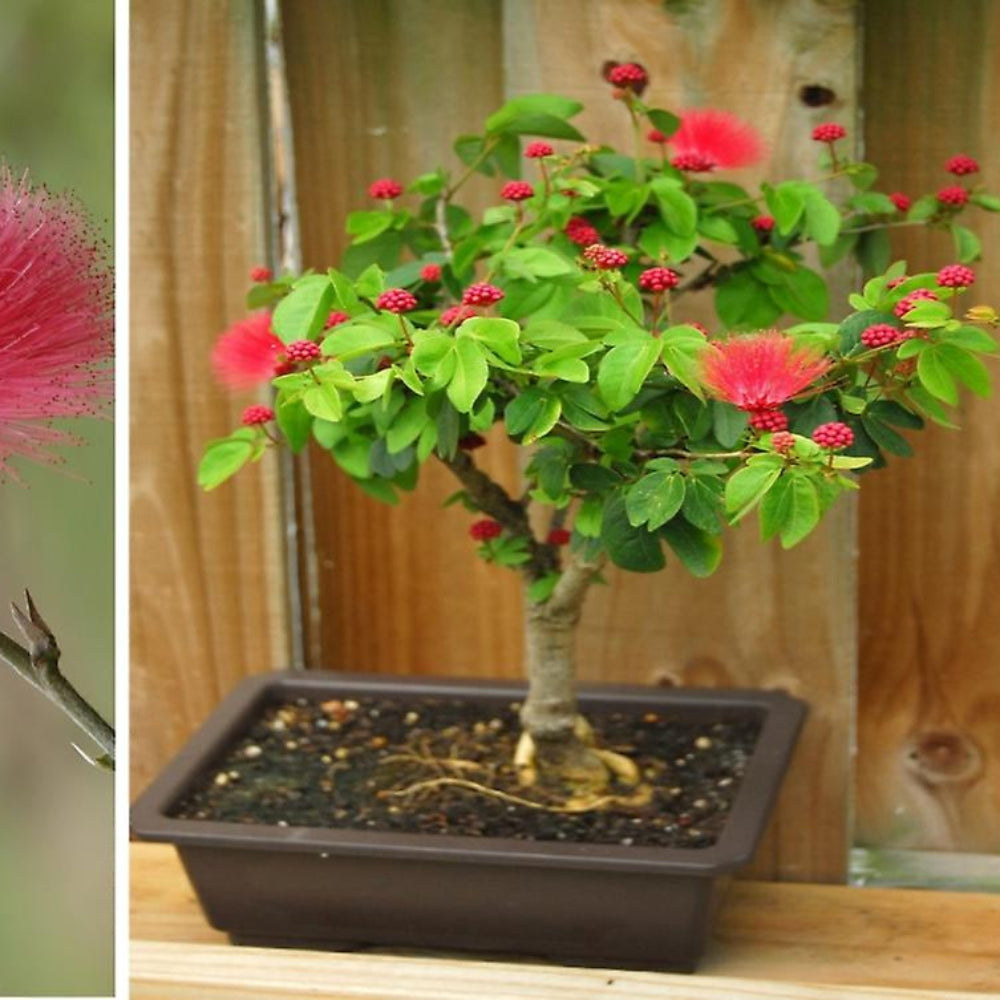
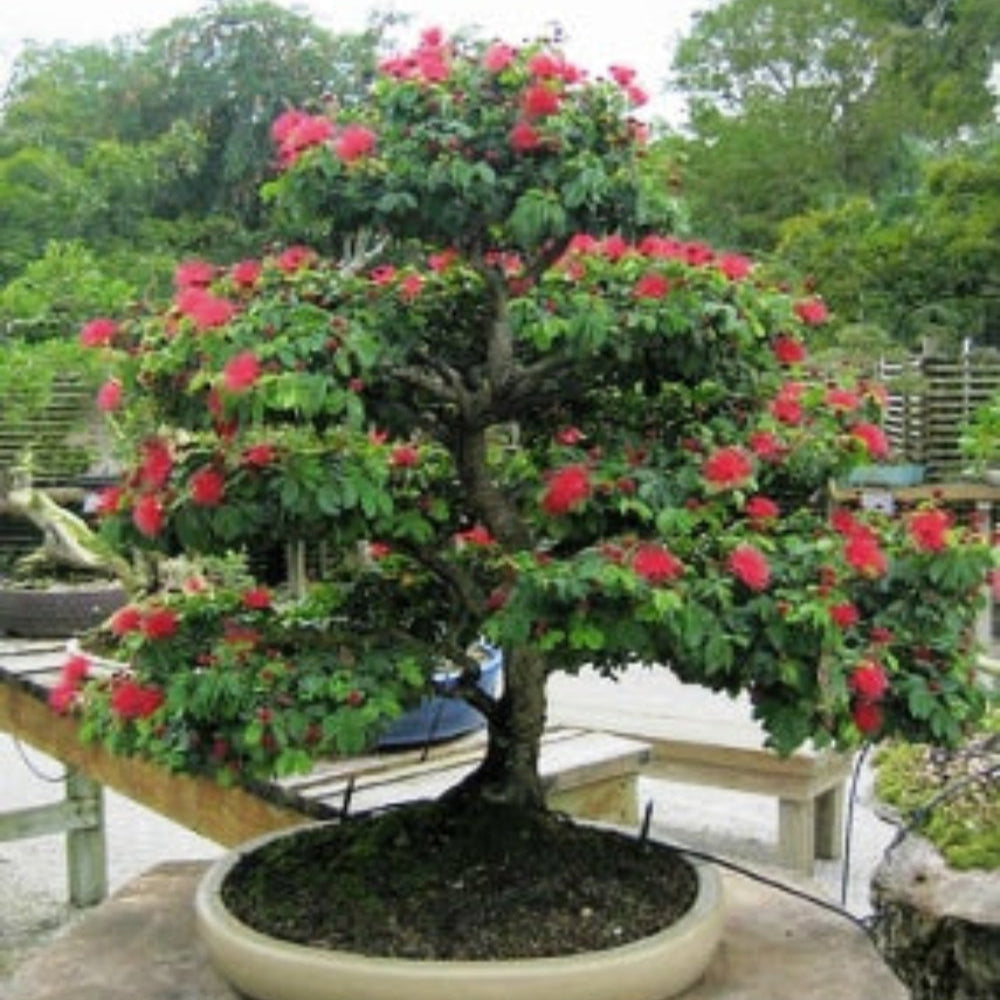
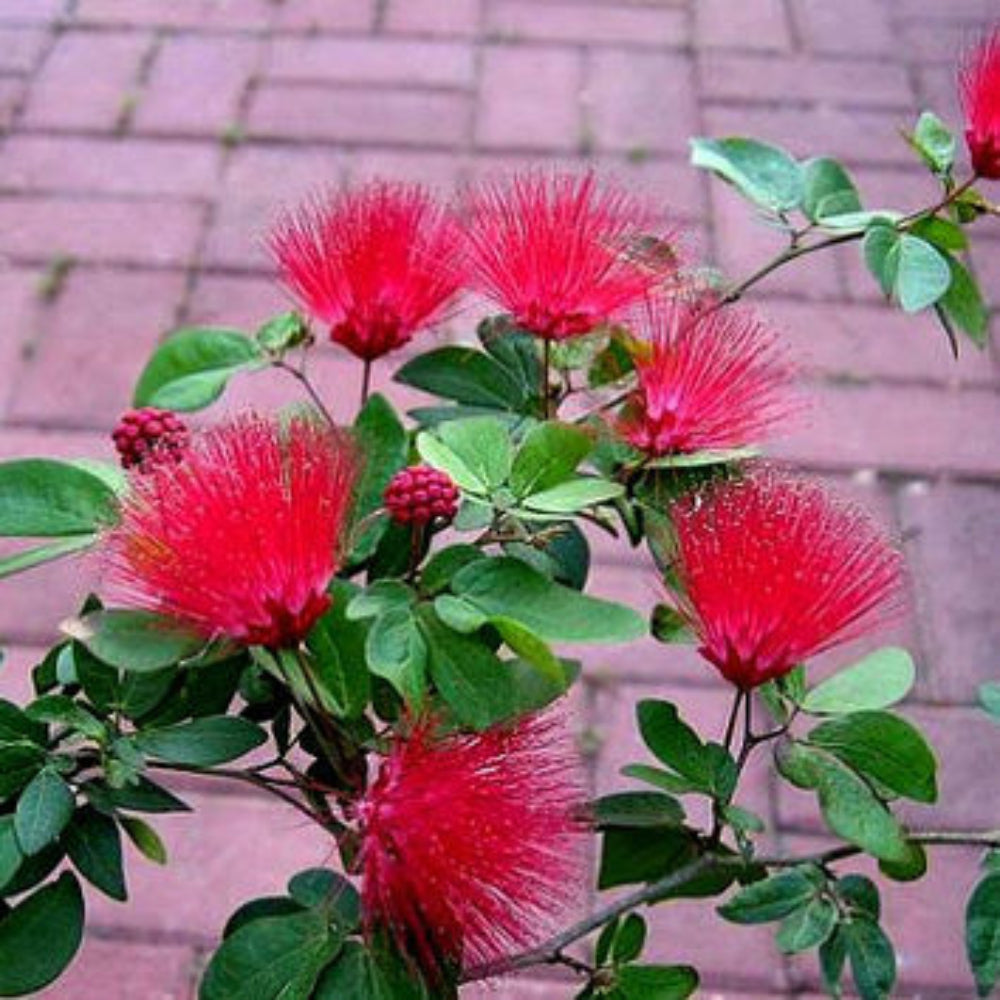
Calliandra red powderpuff Live Beautiful Bonsai plant
Guaranteed Safe Checkout
Green Paradise Offers Beautiful
Calliandra Red Powderpuff Plant
About Calliandra Red Powderpuff Plam
Calliandra red powderpuff (Calliandra haematocephala) is a beautiful flowering plant native to South America, particularly Brazil. It is commonly known by various names, including Red Powder Puff, Powder Puff Tree, and Fairy Duster. This plant is a member of the Fabaceae family, which includes legumes and peas.
The striking and distinctive flowers of the red powderpuff of Calliandra are renowned. The plant produces clusters of spherical, vibrant red flower heads that resemble fluffy powder puffs or miniature fireworks. These blossoms are composed of numerous slender, elongated stamens, which are responsible for the plant's captivating appearance. The flowers bloom intermittently throughout the year, adding a burst of color to gardens or landscapes.
The foliage of the Calliandra red powderpuff is also noteworthy. It features finely divided, fern-like leaves that are bright green and delicately textured. The leaves are composed of numerous small leaflets, giving them a feathery appearance. The plant's foliage remains attractive even when the flowers are not in bloom.
In terms of size, the Calliandra red powderpuff can reach a height and spread of around 6 to 10 feet (1.8 to 3 meters). It is a relatively fast-growing plant and typically forms a rounded, bushy shape. Its growth habit makes it suitable for hedges, borders, or as a focal point in gardens.
Caring for the Calliandra red powderpuff plant is relatively easy. It thrives in warm, tropical, or subtropical climates, preferring full sun to partial shade. Well-drained soil is essential for its growth, and it appreciates regular watering, especially during dry periods. Pruning can be done to maintain the plant's shape and encourage more prolific flowering.
The Calliandra red powderpuff attracts pollinators such as bees, butterflies, and hummingbirds due to its showy flowers. Additionally, it is considered a beneficial plant for its nitrogen-fixing properties. Like other legumes, it forms a symbiotic relationship with soil bacteria that can capture nitrogen from the air and convert it into a form usable by plants.
Overall, the Calliandra red powderpuff is an eye-catching plant that adds a touch of vibrancy to any garden or landscape. Its striking red flowers, delicate foliage, and easy care requirements make it a popular choice among gardening enthusiasts who appreciate unique and visually appealing plants.
How To Grow & Care Calliandra Plant
Calliandra plants, also known as powderpuff plants, are beautiful flowering shrubs or small trees that are native to tropical and subtropical regions. Their vibrant red or pink flowers resemble fluffy powder puffs, hence the name.
Here are some tips on how to grow and care for Calliandra plants:
Climate and Sunlight:
- Calliandra plants thrive in warm and tropical climates.
- They prefer temperatures between 60°F (15°C) and 85°F (29°C).
- Choose a position that receives full to partial sun.
- Six hours of direct sunlight per day is ideal for healthy growth and abundant flowering.
Soil Requirements:
- Use well-draining soil that retains some moisture.
- A mixture of loam, sand, and organic compost works well.
- Avoid heavy clay soils that can lead to waterlogging and root rot.
Watering:
- Water the plant regularly to keep the soil slightly moist.
- However, make sure not to overwater, as this can cause root rot.
- Allow the top inch(2.5 cm) of soil to dry out between waterings.
- Increase watering during hot and dry periods.
Fertilization:
- Apply a balanced, slow-release toxin during the growing season( spring and summer).
- Follow the package instructions for the correct lozenge.
- During the growing season, you can also add a liquid fertilizer every four to six weeks.
Pruning:
- Prune your Calliandra plant after the flowering period to maintain its shape and promote bushier growth.
- Remove any dead, damaged, or diseased branches.\
- If the plant becomes leggy or too large, you can trim it back in early spring to control its size.
Mulching:
- Around the plant's base, spread a layer of organic mulch made of wood chips or bark.
- Mulch helps to conserve moisture, suppress weeds, and improve soil quality.
Pests and Diseases:
- Calliandra plants are generally resistant to most pests and diseases.
- still, keep an eye out for common theater pests like aphids, mealybugs, or scale insects.
- Treat infestations with an appropriate insecticide or use organic pest control methods.
Propagation:
- Calliandra plants can be propagated from seeds or cuttings.
- still, soak them in water for many hours before planting, If using seeds.
- Sow them in a seed-starting mix and keep them moist until germination occurs.
- For stem cuttings, take a 4-6 inch (10-15 cm) cutting from a healthy plant, remove the lower leaves, and place it in a pot with a well-draining rooting medium.
- Keep the slice wettish and in a warm position until it roots.
By following these care tips, you can enjoy the beautiful flowers and lush foliage of the Calliandra plant. Remember to adjust the care routine based on your specific climate and growing conditions.

